[ad_1]
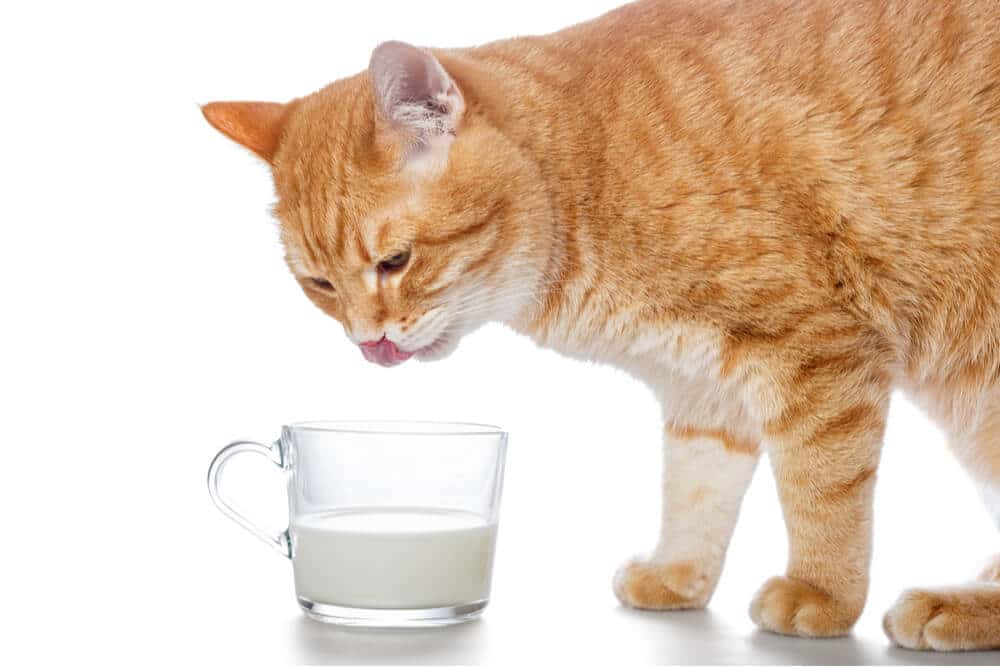
On this article, we’ll take a detailed take a look at the connection between cats and milk, exploring milk’s dietary advantages and well being results, why cats shouldn’t drink an excessive amount of milk, and what you can provide your cat as an alternative.
Can Kittens Drink Milk?
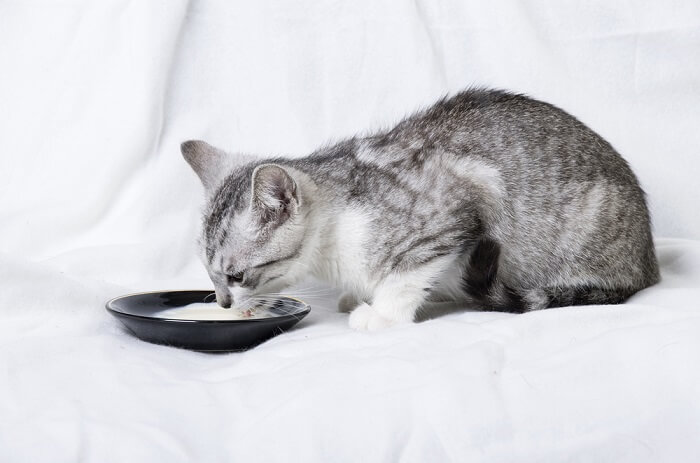
There’s no denying it. Cats can positively drink milk. You’ve seen the illustrations of kittens clustered round a saucer of milk. You’ve seen milk-flavored cat treats. Possibly you’ve even watched your individual cat lapping it up.
Whether or not it’s from a cow, goat, or mama cat, kittens and grownup cats can and do drink milk. There’s additionally no denying that milk is a pure a part of the feline eating regimen—when it comes from Mother.
Like all mammals, kittens depend on their mom’s milk as their sole supply of vitamin. A cat’s milk has the proper steadiness of important vitamins to assist kittens develop and thrive.
And like all child mammals, kittens produce an enzyme known as lactase. This enzyme’s main job is to digest lactose, often known as milk sugar. When kittens drink their mother’s milk, these lactase enzymes go to work on the milk sugar, breaking it into glucose and galactose, two easy sugars that take in simply into the bloodstream.
With out lactase, that lactose could be indigestible.
As a substitute of breaking down and shifting easily into the physique, the milk sugar would keep intact and transfer into the colon. There, the undigested lactose would begin fermenting, draw water into the colon, and trigger the signs we affiliate with lactose intolerance—bloating, diarrhea, and gasoline.
Is Milk Dangerous for Cats?
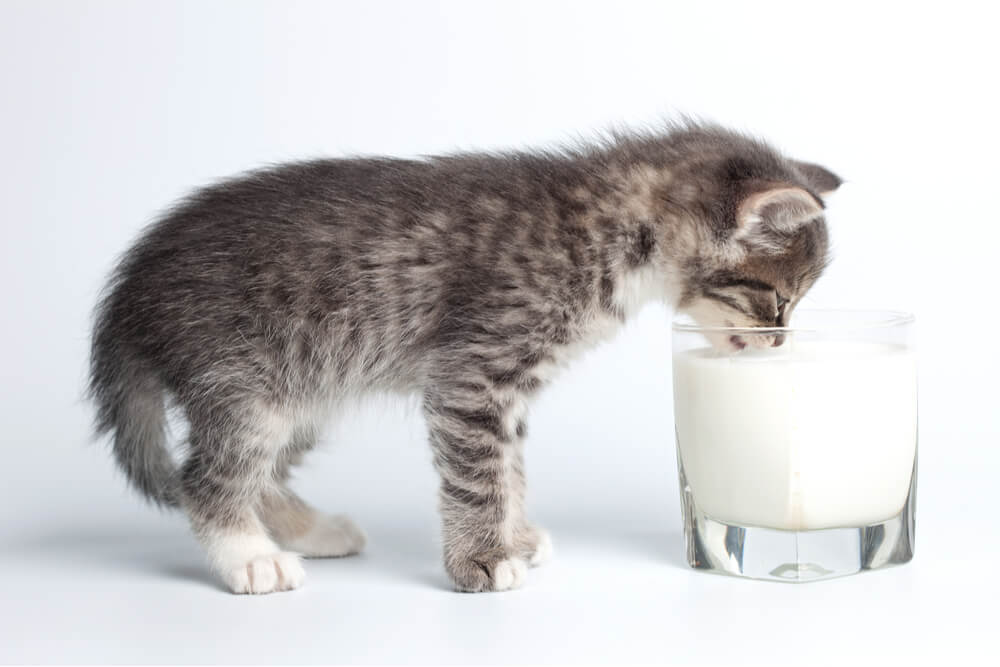
To assist them digest the milk sugars of their mother’s milk, kittens naturally produce an enzyme known as lactase. As they develop up, they produce much less of this enzyme and lots of grow to be lactose-intolerant.
After Kittens Are Weaned, They Begin Producing Much less Lactase. Most Develop into Lactose-Illiberal. And herein lies the issue with cats and milk. Cats are, for probably the most half, lactose-intolerant animals.
Additionally Learn: Weaning Kittens: Suggestions For Profitable Weaning
If an grownup cat tries to drink the identical quantity of milk they’d as a kitten, they’d get an upset abdomen. They simply don’t have the lactase enzymes wanted to make the milk digestible.
Small quantities of milk gained’t make your cat sick, however greater than a tablespoon or so might trigger digestive misery.
There are a couple of exceptions to this rule.
Cats can extra simply digest lactose-free milk and different merchandise made for lactose-intolerant folks. They will additionally eat different low-lactose dairy merchandise, together with most laborious cheeses, yogurt, and bitter cream.
As with all meals not supposed or balanced for cats, these ought to be thought-about occasional treats that make up lower than 10% of a cat’s complete energy for the day.
Cats Don’t Get A lot Dietary Worth Out of Milk.
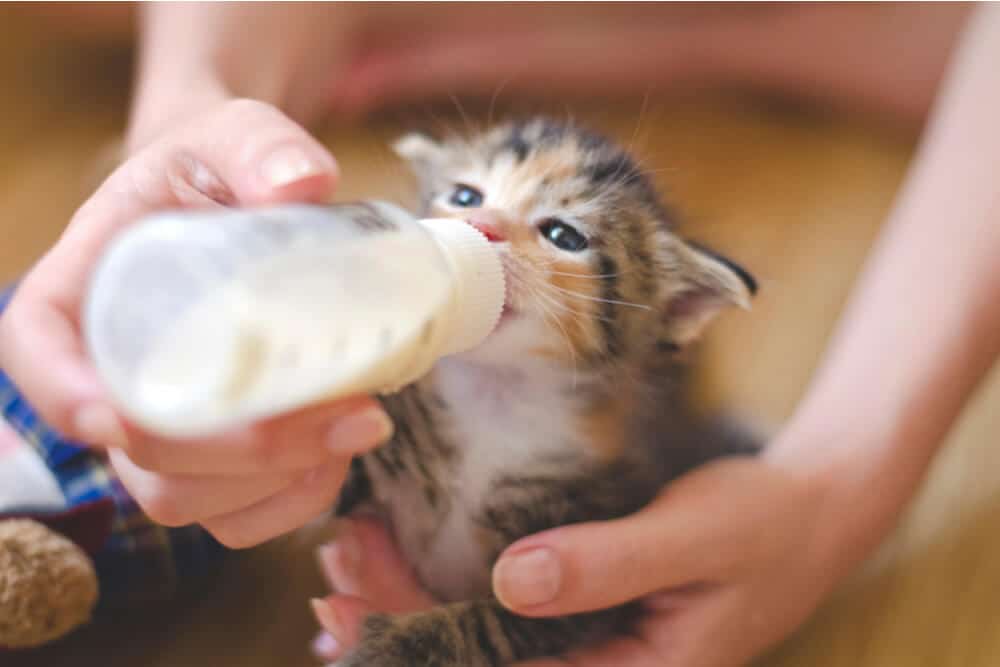
Kittens require the distinctive steadiness of vitamins current of their mom’s milk. Something in addition to this milk or a specially-formulated cat milk replacer will result in dietary deficiencies.
Nursing kittens depend on their mom’s milk to outlive, however every other sort of milk fails to ship the well-rounded vitamin your kitten or cat wants. It’s not a nutritionally full meals and even shut. If you happen to select to present your cat milk, make it a really occasional deal with.
It’s not an alternative to a nutritionally full and balanced eating regimen. And if you happen to’re caring for a younger kitten, by no means substitute cow’s milk for mom’s milk or kitten system.
What Can You Give Your Cat As a substitute of Milk?
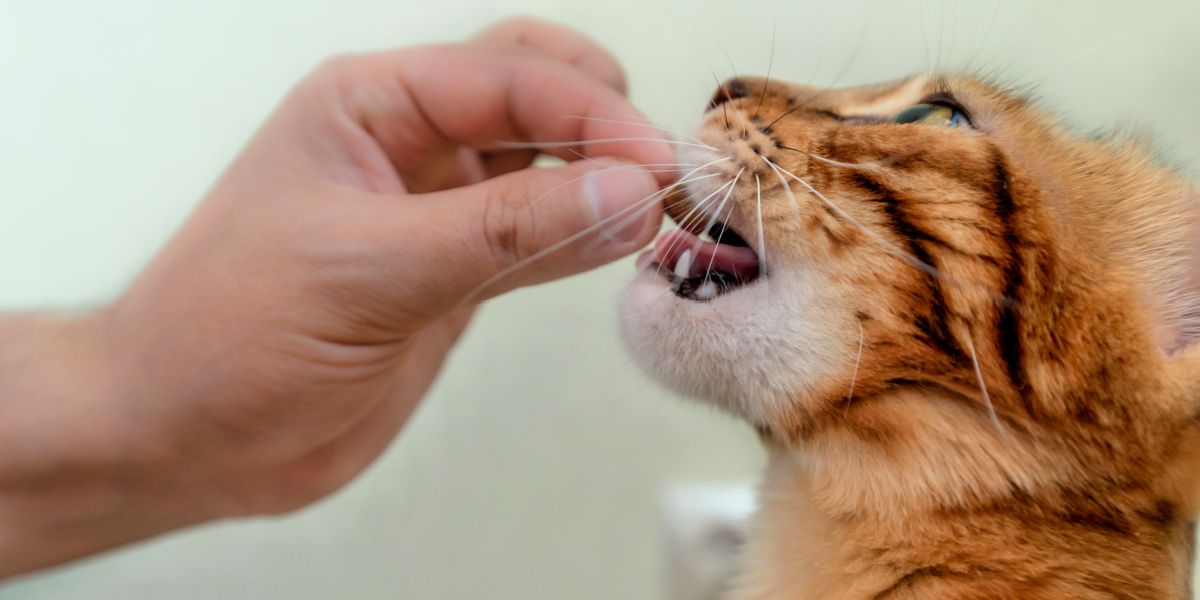
In case your cat loves milk, be at liberty to give it to him as an occasional deal with. So long as you’re not giving him a lot that it triggers a response or makes an enormous dent in his every day calorie finances, milk is usually a nice deal with. If you wish to play it secure with lactose intolerance, go for a lactose-free product.
Cats who love milk and wish greater than only a few sips may get pleasure from specially-formulated cat milk merchandise, typically discovered on the cat meals aisle of pet shops and groceries. These merchandise are lactose-free drinks made with cats in thoughts. Some are fortified with taurine for an amino acid increase.
For very younger kittens, there’s no substitute for mom’s milk or a particularly formulated kitten system. Cat milk replacers are the one secure selection for bottle-feeding a kitten.
Often Requested Questions
What sort of milk is secure for cats?
Cats can safely drink small quantities of any milk, whether or not it’s from a cow, goat, sheep, or different animal. Any greater than a few tablespoons, nonetheless, might trigger abdomen upset. If given in small quantities, milk substitutes like soy, almond, and cashew gained’t make your cat sick, however they’re not one thing to present your cat frequently.
Why do cats love milk?
It’s one of many nice mysteries of the feline world. Milk is a cat’s first meals and, like people, that enjoyment of milk continues past infancy. Some additionally speculate that farm cats developed a style for milk as a cheerful complement to the mice they caught within the barn. Cats are possible interested in the feel and aroma of the fats and protein in milk.
Can milk kill cats?
It’s unlikely. In distinction to some human meals which can be poisonous to cats—chocolate, for instance—milk is comparatively secure and there’s little or no probability that even a big amount of it might kill a cat.
When ought to cats cease ingesting milk?
Kittens start the weaning course of at round 4 weeks of age and ought to be full by the point they’re eight to 10 weeks previous. If you happen to’re bottle-feeding a kitten, they need to proceed consuming kitten system completely till they’re round 4 weeks previous, then step by step transition to stable meals.
How a lot milk can cats have?
Whereas veterinarians agree that milk will not be a full meal and ought to be given as a deal with solely, there is no consensus on how a lot milk is secure for cats. There are about 9 energy in a tablespoon of entire milk, which is about 5% of your cat’s every day calorie requirement.
Treats should not make up greater than 10% of your cat’s every day consumption, so as much as 2 tablespoons of milk could also be a secure, calorically reasonable deal with. With new treats, all the time begin small to see in case your cat tolerates it earlier than growing the quantity step by step.
What occurs if you happen to give cats milk?
Typically, nothing. If you happen to give your cat an excessive amount of milk—as an example they drink 1 / 4 of a cup of it—they could expertise some gassiness and diarrhea.
Can cats drink lactose-free milk?
Sure. It isn’t nutritionally full and you will nonetheless have to be cautious to maintain these energy below management, however lactose-free milk is a secure different for cats.
Are cats allergic to exploit?
Meals allergy symptoms are unusual amongst cats, however when cats do develop allergy symptoms to dietary proteins, dairy is a typical wrongdoer. Indicators that your cat is allergic to exploit embody itchiness, digestive points, hair loss, and watery eyes.
Can cats digest milk?
Sure and no. Whereas cats can digest different parts of milk, grownup felines have a restricted capability to digest the lactose (milk sugars) current in it.
Does milk give cats diarrhea?
As a result of most cats are lactose-intolerant, ingesting an excessive amount of milk can provide them diarrhea. If you happen to discover your cat having free stools after ingesting milk, in the reduction of on the quantity you are giving them or contemplate a lactose-free different. Lactose-free milk or specifically formulated cat milk might give your cat the style they love with out the diarrhea that follows.
Does milk make cats poop?
In a roundabout way. Nonetheless, cats might poop extra or have free bowel actions after ingesting milk as a result of presence of lactose, a milk sugar that almost all cats cannot digest. When this lactose strikes into your cat’s colon, it begins to ferment and will trigger bloating, gassiness, and diarrhea.
[ad_2]